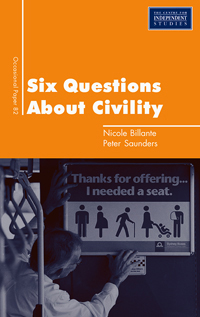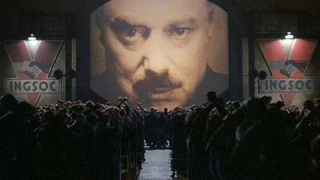
Civility is a moral virtue and a social responsibility, contributing to the public good and the quality of life. Yet the term civility is often used without a true understanding of what it is and why it is important. Commentators are often quick to point out its decline without providing sufficient explanation for their conclusions. Some have even criticised civility as a mechanism of oppression.
This paper aims to provide clarity to the debate by answering six key questions, starting with the most basic question – what is civility? It highlights the problem in measurement, the dangers in declaring civility’s decline, and future directions in research and policy analysis.
Upholding civility in our society is imperative, but what role should schools, community institutions, opinion leaders and the police play in enforcing civil policies, if any? The solution is by no means clear. Civility is a personal virtue, but governments can aid by initiating dialogue, raising awareness and nurturing our public conscience – what Adam Smith called the ‘spectator in the breast’.










